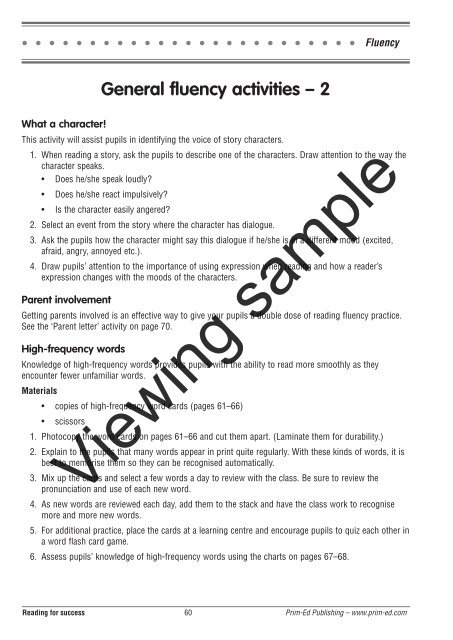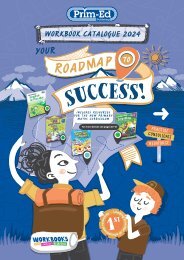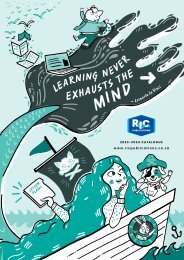PR-6218IRE Reading for Success - Book 3
Create successful ePaper yourself
Turn your PDF publications into a flip-book with our unique Google optimized e-Paper software.
Fluency<br />
General fluency activities – 2<br />
What a character!<br />
This activity will assist pupils in identifying the voice of story characters.<br />
1. When reading a story, ask the pupils to describe one of the characters. Draw attention to the way the<br />
character speaks.<br />
• Does he/she speak loudly?<br />
• Does he/she react impulsively?<br />
• Is the character easily angered?<br />
2. Select an event from the story where the character has dialogue.<br />
3. Ask the pupils how the character might say this dialogue if he/she is in a different mood (excited,<br />
afraid, angry, annoyed etc.).<br />
4. Draw pupils’ attention to the importance of using expression when reading and how a reader’s<br />
expression changes with the moods of the characters.<br />
Parent involvement<br />
Getting parents involved is an effective way to give your pupils a double dose of reading fluency practice.<br />
See the ‘Parent letter’ activity on page 70.<br />
High-frequency words<br />
Knowledge of high-frequency words provides pupils with the ability to read more smoothly as they<br />
encounter fewer unfamiliar words.<br />
Materials<br />
• copies of high-frequency word cards (pages 61–66)<br />
• scissors<br />
1. Photocopy the word cards on pages 61–66 and cut them apart. (Laminate them <strong>for</strong> durability.)<br />
2. Explain to the pupils that many words appear in print quite regularly. With these kinds of words, it is<br />
best to memorise them so they can be recognised automatically.<br />
3. Mix up the cards and select a few words a day to review with the class. Be sure to review the<br />
pronunciation and use of each new word.<br />
4. As new words are reviewed each day, add them to the stack and have the class work to recognise<br />
more and more new words.<br />
5. For additional practice, place the cards at a learning centre and encourage pupils to quiz each other in<br />
a word flash card game.<br />
6. Assess pupils’ knowledge of high-frequency words using the charts on pages 67–68.<br />
Viewing sample<br />
<strong>Reading</strong> <strong>for</strong> success 60 Prim-Ed Publishing – www.prim-ed.com


















